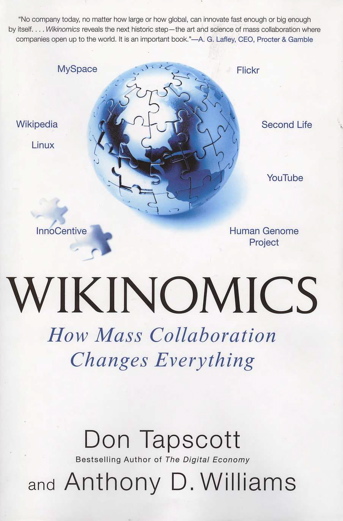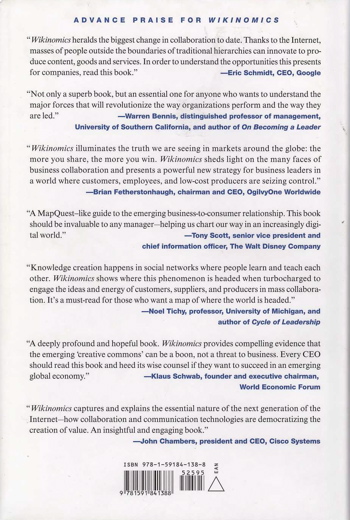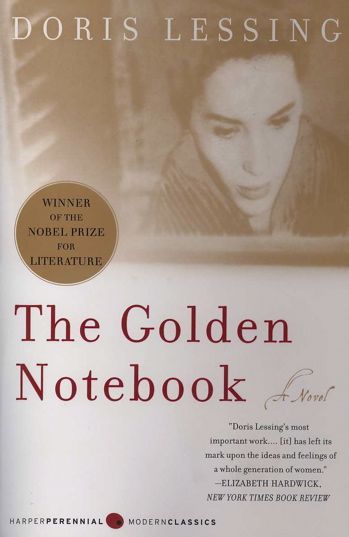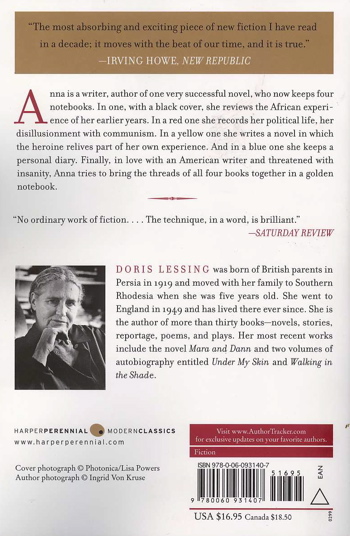Saturday December 22, 2007 6:00 am Lethbridge, Alberta
It is -9 C with a high forecast of +1 C. Sunrise 8:26 Sunset 16:33 Hours of daylight: 8:07

12:15 PM
A. Morning Musings
I continue to make progress. I finally have my desk cleaned off and organized. The coffee is ready. Bring on the world.
Early morning is my private time. At the moment I have three main competitors for my attention during this hour or two.
- Setting up DCC on my model train layout
- Creating a new website for my model trains
- Handwriting a personal journal entry.
This morning I have one additional activity - to complete reading "Seven Types of Ambiguity" by Elliot Perlman.
| Immediate |
Description |
Time |
| Model Trains |
Review of DCC and previous activities from early spring |
2 hr |
| Literature |
Complete reading "Seven Types of Ambiguity " by Elliot Perlman |
1 hr |
B. Actual Learning Activities
6:40 am
What a way to begin the day. I have finished reading "Seven Types of Ambiguity" by Elliot Perlman. When I closed the book I simply sat in my chair for about 20 minutes and thought. Yes, Perlman has it right. Our current Western culture has lost its soul. Although the story is amazingly intricate and complex, the message is more than an example of how complex life is. Perlman uses the example of health care to show how little regard we have, as individuals, for the common good. I am reminded of something I read a few years ago, I think it may have been An Unexpected Light by Jason Elliot (the name Elliot is part of both author's name). Begging is a integral part of Afghani culture, in part because it gives people an opportunity to help someone in need. I have often said that Canada has a better "safety net" than the United States but sitting and reflecting on Perlman's novel I now realize that the issue is not one of a safety net but why such a net is necessary in the first place. It may be a complex world, and an imperfect one, but much of the imperfection is our individual focus on ourselves. Perlman seems to suggest that globalization and greed are the problem but I think it is much deeper than that. We are too busy to care. It hurts too much.
I am now adding "Seven Types of Ambiguity" to my list of recommended books.
| Fiction |
|
|
| |
I Just Finished Reading |
Seven Types of Ambiguity by Elliot Perlman |
| |
I Am Reading Now |
Divisadero by Michael Ondaatje |
| |
I Plan To Read Soon |
The Tender Bar by J. R. Moehringer |
| Nonfiction |
|
|
| |
I Just Finished Reading |
The Black Swan by Nassim Taleb |
| |
I Am Reading Now |
|
| |
I Plan To Read Soon |
Wikinomics by Don Tapscott |
| Recommend |
|
|
| |
Virginia Woolf: An Inner Life (2005) by Julia Briggs |
| |
The View From Castle Rock (2006) by Alice Munro |
| |
Passage to Juneau (1999) by Jonathan Raban |
| |
A Spot of Bother (2006) by Mark Haddon |
| |
Runaway (2004) by Alice Munro |
| |
Baudolino (2004) by Umberto Eco |
| |
The Road (2006) by Cormac McCarthy |
| |
The Brothers Karamasov (1990) by Fyodor Dostoevsky |
| |
Where Have All The Leaders Gone? (2007) by Lee Iacocco |
| |
Slaughterhouse-Five (1969) by Kurt Vonnegut |
| |
Bel Canto (2001) by Ann Patchett |
| |
Pushkin: A Biography (2002) by T. J. Binyon |
| |
Kafka on the Shore (2005) by Haruki Murakami |
| |
Howards End (1910) by E. M. Forster |
| |
Since Daisy Creek (1984) by W. O. Mitchell |
| |
A Heartbreaking Work of Staggering Genius (2001) by Dave Eggers |
| |
Three Dollars (1998) by Elliot Perlman |
| |
First Love (1860) by Ivan Turgenev |
| |
The Sound of One Hand Clapping (1997) by Richard Flanagan |
| |
Seven Types of Ambiguity (2003) by Elliot Perlman |
11:00 am
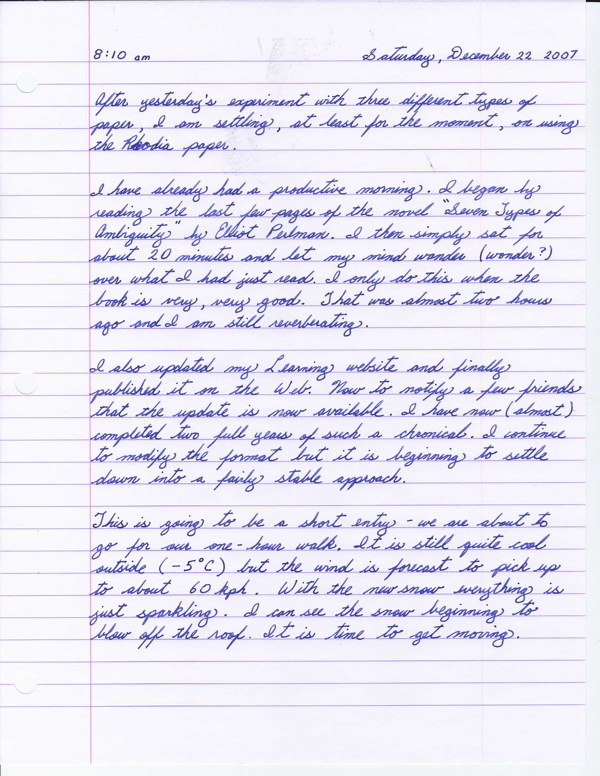
I am back from a brief trip to Chapters where I bought 3 books and received one free. Three were gifts - the other one was:
- Wikinomics (2006) by Don Tapscott & Anthony D. Williams
3:00 PM
We are back from a little last minute shopping, more for supplies than for gifts. I did buy one more book:
- "The Golden Notebook" by Doris Lessing. This was originally published in 1962.
The idea of four notebooks is very similar to my idea of a Learning web site and a handwritten personal journal.
6:00 PM
Here is a photo of my choriso sausage dinner:



